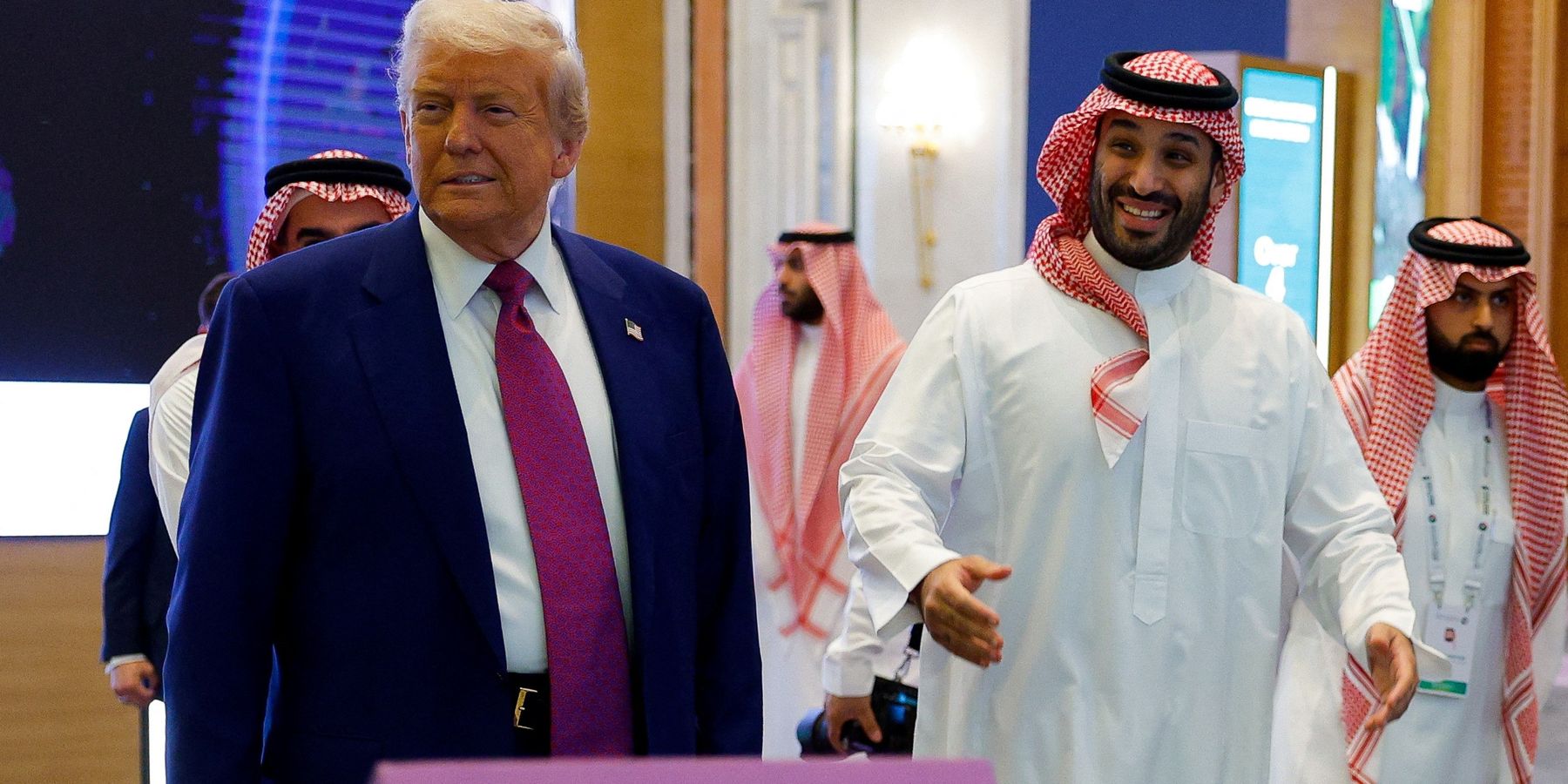President Donald Trump's recent whirlwind tour of the Middle East was a spectacle of calculated opulence and diplomatic signaling, highlighting the significance of the visit to the Gulf monarchs.
Fighter jets escorted Air Force One into Saudi, Qatari, and Emirati airspace, and once on the ground, the president’s hosts unfurled lavish displays of hospitality: traditional sword dances, Arabian horses, and gleaming military salutes.
Yet, amid this carefully choreographed fanfare, Israel, the United States’ long-declared major strategic partner, was conspicuously absent from the itinerary. The decision to bypass Israel, particularly at a time of acute regional tension as a result of the Gaza conflict, reveals a core tenet of Trump's approach to statecraft: the relentless pursuit of headline-grabbing “wins” and achievable outcomes that can be quickly packaged for political consumption.
The Gaza quagmire, a gordian knot of historical grievances and harsh contemporary realities, offers no such low-hanging fruit. Speaking in Doha on May 15, President Trump himself condemned the October 7 Hamas attack as "one of the worst, most atrocious attacks anyone has ever seen." Yet, these strong words were delivered from Qatar, a key mediator in the conflict, not from Jerusalem (which Trump controversially recognized as Israel's capital during his first term).
With ceasefire negotiations between Israel and Hamas repeatedly stalling, the prospect of Trump brokering a breakthrough remains increasingly distant. For a president who thrives on the image of a dealmaker, a visit to Israel under current circumstances only risks highlighting impotence.
In contrast, the Gulf states offered a far more fertile ground for success. With their investment-hungry Sovereign Wealth Funds and increasing assertiveness in regional diplomacy, nations like Saudi Arabia, Qatar, and Oman have transformed themselves into indispensable economic partners and political mediators. Their financial muscle and sophisticated diplomatic backchannels are shaping outcomes not just in the Israeli-Palestinian arena but across a range of geopolitical hotspots, from Russia-Ukraine to the Indian subcontinent and in ongoing nuclear talks between the U.S. and Iran.
Beyond the Arabian Peninsula, Syria’s carefully curated re-entry into the regional fold provided another stage for Trump to claim a diplomatic victory. At the U.S.-Saudi Investment Forum in Riyadh, he declared, "After discussing the situation in Syria with the Crown Prince [Mohammed bin Salman]... and also with President Erdogan of Turkey… I will be ordering the cessation of sanctions against Syria in order to give them a chance at greatness."
He wished the war-torn nation "good luck," urging it to "show us something very special" — a pronouncement met with roaring applause and a standing ovation.
This move, culminating in a direct meeting between Trump and Syrian President Ahmed al-Sharaa, was hailed by al-Sharaa in a subsequent national address where he described the decision as "historic and courageous.” Al-Sharaa added that "it alleviates the suffering of the people, helps their rebirth and lays the foundations for stability in the region."
For Trump, facilitating Syria’s return, however complicated the road ahead, offers a narrative of peacemaking and decisive action.
It would be a misreading, however, to interpret this selective engagement as the death knell of the U.S.-Israel alliance. The strategic partnership is too deeply institutionalized, too interwoven with decades of bipartisan U.S. policy and substantial security commitments, to be undone by a single presidential itinerary.
The U.S. State Department, as recently as April, reiterated that "steadfast support for Israel’s security has been a cornerstone of American foreign policy." This support translates into over $130 billion in cumulative bilateral assistance and an ongoing 10-year Memorandum of Understanding that funnels $3.3 billion in annual Foreign Military Financing and $500 million towards missile defence programs.
The U.S. commitment to maintaining Israel's Qualitative Military Edge remains official policy, enshrined in assessments and legal frameworks such as the United States-Israel Strategic Partnership Act of 2014, which formally declared Israel a "major strategic partner." Indeed, influential policy circles, such as the Heritage Foundation, advocate not for a dismantling of the relationship, but for its evolution into an "equal strategic partnership" by mid-century — one less reliant on unidirectional aid and more focused on “burden-sharing,” as the White House described it.
The Abraham Accords, a signature achievement of Trump's first term, also visibly remain on his agenda. During his meeting with Syria's al-Sharaa, Trump extended an invitation for Syria to join the normalization agreements. This persistence highlights a continued U.S. interest in fostering a broader regional realignment that benefits Israel.
Nevertheless, the immediate optics and objectives of Trump's latest Middle Eastern foray were clear. The photo opportunities with Gulf leaders, the announcements of colossal investment deals, and the facilitation of Syria's reintegration provided far more political points than a visit to Israel, currently mired in the complexities of the Gaza war and the strained international standing of its current leadership.
Even Trump's own musings on Gaza, voiced in Doha — "I have concepts for Gaza that I think are very good. Make it a freedom zone. Let the United States get involved and make it just a freedom zone" — suggest a preference for grand, if vague, U.S.-led solutions conceived from afar, rather than as a result of direct engagement with the intractable realities on the ground.
Thus, Trump’s decision to skip Israel on this occasion appears less a fundamental strategic pivot and more a tactical deferral. A recognition that, for now, the diplomatic wins he craves lie elsewhere. The enduring structures of the U.S.-Israel alliance may persist, but its operational dynamics under Trump are clearly hostage to the president's unyielding quest for deal-making pageantry.
















